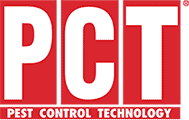Are Raccoons Dangerous?
Raccoons can be dangerous for many reasons:
- Wild animals are unpredictable. If a raccoon feels threatened, it will attack.
- Raccoons are formidable creatures. They have sharp teeth and claws, and the strength to inflict significant harm. There are many accounts of children, and adults, being disfigured by raccoon attacks. They are also known to inflict wounds on dogs and cats, especially at night.
- Raccoons get into the trash. This can cause them to have harmful bacteria on their fur. It is not a good idea to touch a raccoon, even if it is harmless.
- Next to bats, raccoons are most frequently linked to reported rabies cases in the United States. All it takes is a single bite. And bites are much more likely if a raccoon has rabies because this disease causes raccoons to come up close to humans, rather than keeping a safe distance.
You should never make raccoons feel welcome in your yard. They bring too many problems with them.
What Are Raccoons Attracted to Your Property?
- Unsecured trash cans: As mentioned, raccoons are drawn to trash. If you have cans or a dumpster that you cannot close securely, raccoons will be lured in.
- Pet food: If you leave dog or cat food outside for your pets, raccoons will love you for it. This is also an attractant for many other animals and insect pests.
- Gardens, fruit trees, and berry bushes: These are a source of food for raccoons and other pests.
- Places to hide: Raccoons like to hide in outbuildings and sheds or underneath porches and decks. And if there is access through a hole big enough, they will find their way into attic spaces.
What to Do if a Raccoon Approaches You?
If a raccoon approaches you, it is recommended that you break eye contact and slowly back away, moving into a building until the animal passes. Make yourself appear larger while doing this, but do not attack the raccoon unless you’re attacked first.
What Kind of Damage Can Raccoons Cause?
Once they’ve found a suitable nesting place, (which includes your attic, the chimney, the crawl space under your property and areas under porches and decking) they can begin to do some serious damage to your structure.
- They will remove shingles and fascia board to enter your attic space and may even damage vents.
- They will rip up siding and insulation and whatever else they can find to help make their nest more ‘hospitable’.
- They will block up chimneys with nesting materials.
- They will scatter garbage from your trash cans all over your property.
- They will steal garden crops and roll up sod in search of worms, grubs, and insects for their dining pleasures.
How to Get Rid of Raccoons
Getting rid of a raccoon in the attic or anywhere else on your property can be very challenging. You never know what diseases or parasites the raccoons may be carrying, so approaching these animals yourself is a very bad idea. They may be hiding babies somewhere and will attack you in order to protect their little ones. They may also be rabid, which would mean that they’d come at you regardless of the situation, ready to attack and bite you by simply getting near them. Getting rid of raccoons on your own is something you should never try; it is too dangerous and hardly ever ends well. If you have raccoons on your property and you’re ready to evict them, you should leave raccoon control to the professionals.
How to Prevent Raccoons from Nesting in Your Home
There are no foolproof prevention techniques to keep raccoons away from your property forever. These are clever little animals that will find a way onto your property no matter what you do. But with that said, there are a few small prevention tips you can follow to try to minimize the possibility that you will play host to raccoons in the future and these include:
- Eliminating a favorable environment for raccoons will so they don’t have access to food, water and nesting sites.
- Use a bungee cord or rope to ‘tie down’ your garbage cans outdoors so that they can’t be knocked over.
- Keep garbage in a tightly lidded trash can.
- Don’t leave pet food and water sources outside.
- Keep wood piles neatly stacked.
- Don’t allow for clutter to pile up around your property.
When raccoons appear in your yard, it can be exciting. We get it. They’re fun to watch, and they seem harmless. But, they are anything but harmless. Let the wildlife control specialists here at Rottler reduce the threat of accidental conflict with raccoons and other wildlife pests. It’s all fun and games until something bad happens, unexpectedly.
For industry-leading wildlife control and removal, along with other pest control in St. Louis, Kansas City, and more, reach out to Rottler Pest Solutions for immediate assistance.


